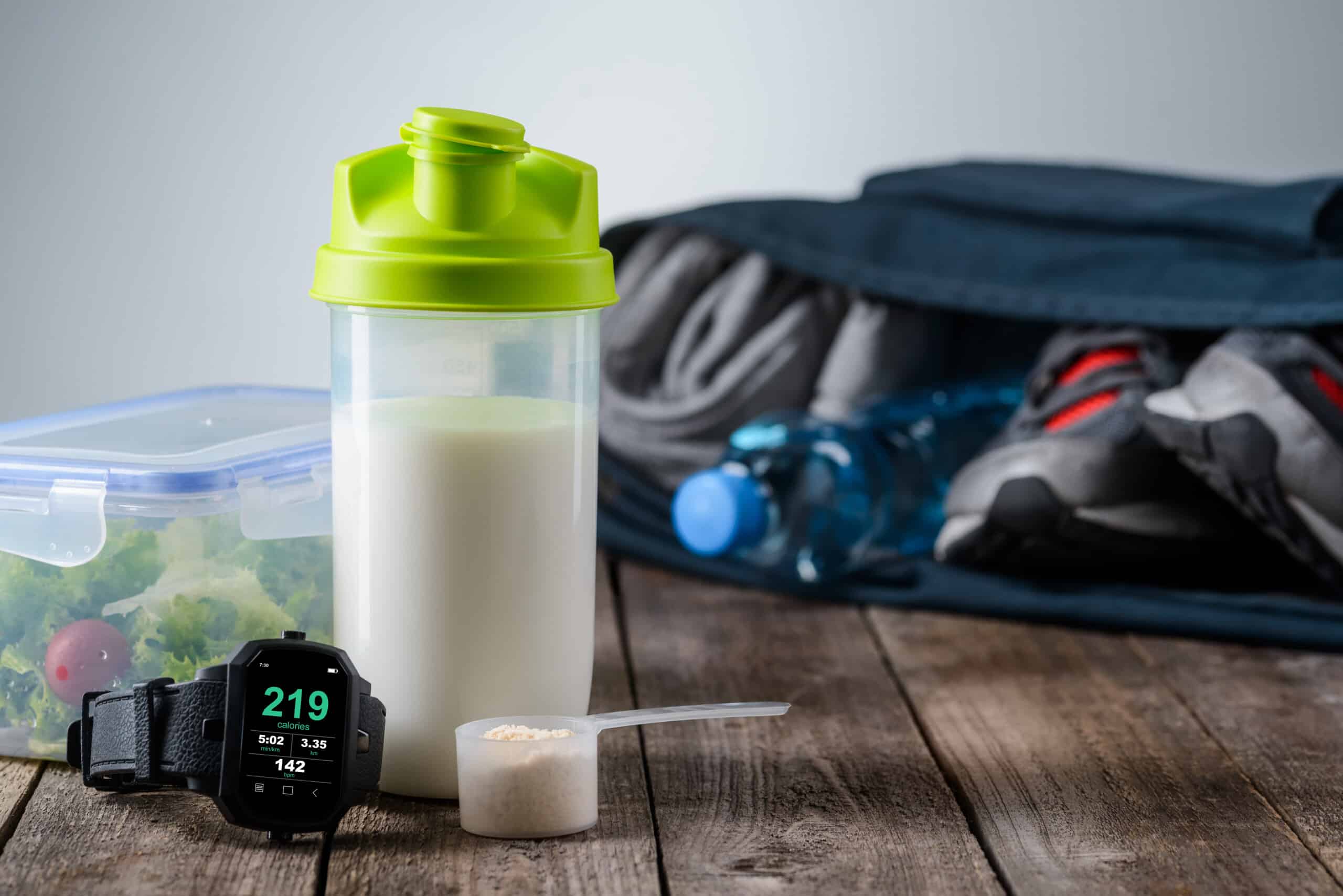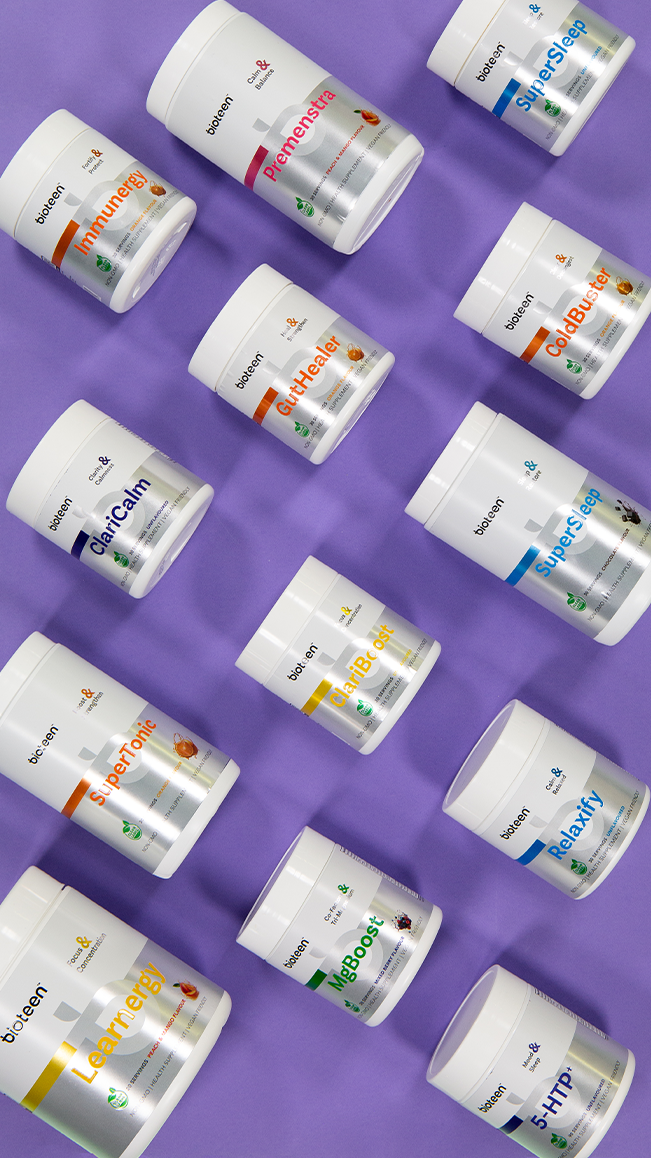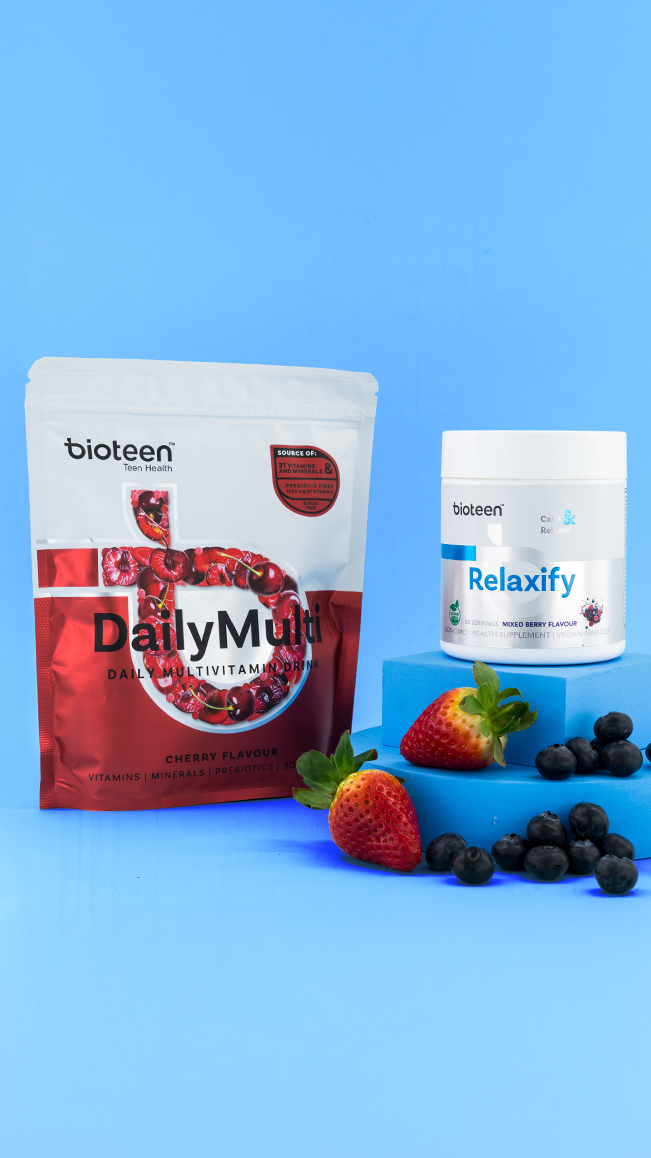
The Science-backed benefits of whey protein for teen athletes
Teen athletes require optimal nutrition to support their demanding physical activities in addition to supporting their normal growth and development. A well-rounded diet that includes whole food sources of protein is crucial to support athletic performance and overall health.
However, for teenage athletes who are training intensely, supplements such as whey protein can provide an additional source of protein to support their athletic performance, as long as it is obtained from a product that is free from harmful ingredients (1)
In this blog, we will explore the science-backed benefits of whey protein for teenage athletes and how it can support their growth, musclebuilding, energy, and recovery.
Whey protein is a complete protein that is derived from milk. Whey protein is a high-quality protein that contains all the nine essential amino acids required for growth and repair of body tissues.
It is also a rich source of branched-chain amino acids (BCAAs), which are important for muscle building and repair. In addition, whey protein is a good source of leucine, an amino acid that is particularly important for muscle protein synthesis to promote muscle recovery after exercise, which is crucial for athletes who are training intensely (2)
Whey protein is low in fat and carbohydrates, making it an ideal supplement for individuals who want to increase their protein intake without consuming excess calories.
During adolescence, the body undergoes significant changes, including an increase in muscle mass and bone density. These changes require a higher intake of protein to support growth and repair of body tissues. Sports and exercise participation can also increase protein needs. (3)
Whey protein is a rich source of high-quality protein that can help meet the increased protein needs of growing teenagers.
In addition, the amino acid content of whey protein can also promote bone health in adolescents by stimulating the production of bone-building cells (4). Therefore, including whey protein in the diet can help teenage athletes promote growth and support overall health.
 In adolescent athletes, consuming whey protein post-workout has been shown to increase bone turnover which is linked to increased bone strength.
In adolescent athletes, consuming whey protein post-workout has been shown to increase bone turnover which is linked to increased bone strength.
Whey protein has been shown to reduce blood sugar spikes when consumed along with a carbohydrate-rich meal (5)
This can prevent energy crashes and help maintain energy levels throughout the day. This is especially important for athletes who need sustained energy during training and competition. Consuming a source of protein like whey protein with breakfast, for instance, can support blood sugar stability as discussed in our previous blog article.
Whey protein also contains branched-chain amino acids (BCAAs), which can be used as a source of energy during exercise, further supporting energy levels.
 Graph showing the effect of varying amounts of whey protein in lowering the blood glucose (sugar) response to a carbohydrate-containing meal. (5)
Graph showing the effect of varying amounts of whey protein in lowering the blood glucose (sugar) response to a carbohydrate-containing meal. (5)
Rapid recovery is crucial for teenage athletes to allow the body to repair and rebuild damaged tissues and replenish energy stores.
The importance of rapid recovery for teens is two-fold: first, it enables regular participation in sports, as a speedy recovery reduces the risk of injury and allows for consistent training and competition. Rapid recovery also ensures that the body is well recovered to attend to academic pursuits.
Whey protein can help enhance recovery by providing high-quality protein and nutrients that the body needs to repair and grow. The quick absorption rate of whey protein makes it an excellent post-workout supplement, allowing for speedy recovery and improved athletic performance (6)
Additionally, the energy provided by whey protein can help with schoolwork and other daily activities, ensuring that teenage athletes can balance their athletic pursuits with their academic and personal lives.
 Consuming whey protein post-exercise provides the full spectrum of amino acids to support muscle protein synthesis and repair
Consuming whey protein post-exercise provides the full spectrum of amino acids to support muscle protein synthesis and repair
Intense training can compromise the immune system, leaving athletes susceptible to infections.
Research has shown that whey protein has immune-enhancing benefits. Whey protein is rich in immunoglobulins, which are antibodies that help fight off infections and overall immune function (7)
Whey protein is also a rich source of amino acids like glycine, glutamine and cysteine which are involved in the immune system. This is important for athletes who are at an increased risk of infections due to their intense training regimens.
While whey protein can be an effective supplement for teenage athletes, it is important to note that whole food sources of protein should form the foundation of their diet. Foods such as lean meats, poultry, fish, eggs, legumes, nuts, and seeds provide a wide range of nutrients, including vitamins, minerals, and fibre that are essential for optimal health and athletic performance.
Whey protein is a powerful supplement for teenage athletes that can support muscle growth, energy levels, immune function, and overall health. Its numerous benefits make it an ideal supplement for teenage athletes who are looking to maximize their growth, musclebuilding, energy, and recovery.
However, it is important to use whey protein supplements should be considered a complementary addition to a well-balanced diet rather than a replacement for whole foods.
However, for teenage athletes who are training intensely, supplements such as whey protein can provide an additional source of protein to support their athletic performance, as long as it is obtained from a product that is free from harmful ingredients (1)
In this blog, we will explore the science-backed benefits of whey protein for teenage athletes and how it can support their growth, musclebuilding, energy, and recovery.
Whey Protein: A Complete Protein Source
Whey protein is a complete protein that is derived from milk. Whey protein is a high-quality protein that contains all the nine essential amino acids required for growth and repair of body tissues.
It is also a rich source of branched-chain amino acids (BCAAs), which are important for muscle building and repair. In addition, whey protein is a good source of leucine, an amino acid that is particularly important for muscle protein synthesis to promote muscle recovery after exercise, which is crucial for athletes who are training intensely (2)
Whey protein is low in fat and carbohydrates, making it an ideal supplement for individuals who want to increase their protein intake without consuming excess calories.
Supporting Growth and Development
During adolescence, the body undergoes significant changes, including an increase in muscle mass and bone density. These changes require a higher intake of protein to support growth and repair of body tissues. Sports and exercise participation can also increase protein needs. (3)
Whey protein is a rich source of high-quality protein that can help meet the increased protein needs of growing teenagers.
In addition, the amino acid content of whey protein can also promote bone health in adolescents by stimulating the production of bone-building cells (4). Therefore, including whey protein in the diet can help teenage athletes promote growth and support overall health.
 In adolescent athletes, consuming whey protein post-workout has been shown to increase bone turnover which is linked to increased bone strength.
In adolescent athletes, consuming whey protein post-workout has been shown to increase bone turnover which is linked to increased bone strength. Regulating Blood Sugar Levels and Boosting Energy
Whey protein has been shown to reduce blood sugar spikes when consumed along with a carbohydrate-rich meal (5)
This can prevent energy crashes and help maintain energy levels throughout the day. This is especially important for athletes who need sustained energy during training and competition. Consuming a source of protein like whey protein with breakfast, for instance, can support blood sugar stability as discussed in our previous blog article.
Whey protein also contains branched-chain amino acids (BCAAs), which can be used as a source of energy during exercise, further supporting energy levels.
 Graph showing the effect of varying amounts of whey protein in lowering the blood glucose (sugar) response to a carbohydrate-containing meal. (5)
Graph showing the effect of varying amounts of whey protein in lowering the blood glucose (sugar) response to a carbohydrate-containing meal. (5)Promoting Post-Exercise Recovery
Rapid recovery is crucial for teenage athletes to allow the body to repair and rebuild damaged tissues and replenish energy stores.
The importance of rapid recovery for teens is two-fold: first, it enables regular participation in sports, as a speedy recovery reduces the risk of injury and allows for consistent training and competition. Rapid recovery also ensures that the body is well recovered to attend to academic pursuits.
Whey protein can help enhance recovery by providing high-quality protein and nutrients that the body needs to repair and grow. The quick absorption rate of whey protein makes it an excellent post-workout supplement, allowing for speedy recovery and improved athletic performance (6)
Additionally, the energy provided by whey protein can help with schoolwork and other daily activities, ensuring that teenage athletes can balance their athletic pursuits with their academic and personal lives.
 Consuming whey protein post-exercise provides the full spectrum of amino acids to support muscle protein synthesis and repair
Consuming whey protein post-exercise provides the full spectrum of amino acids to support muscle protein synthesis and repairImmune Function
Intense training can compromise the immune system, leaving athletes susceptible to infections.
Research has shown that whey protein has immune-enhancing benefits. Whey protein is rich in immunoglobulins, which are antibodies that help fight off infections and overall immune function (7)
Whey protein is also a rich source of amino acids like glycine, glutamine and cysteine which are involved in the immune system. This is important for athletes who are at an increased risk of infections due to their intense training regimens.
Conclusion
While whey protein can be an effective supplement for teenage athletes, it is important to note that whole food sources of protein should form the foundation of their diet. Foods such as lean meats, poultry, fish, eggs, legumes, nuts, and seeds provide a wide range of nutrients, including vitamins, minerals, and fibre that are essential for optimal health and athletic performance.
Whey protein is a powerful supplement for teenage athletes that can support muscle growth, energy levels, immune function, and overall health. Its numerous benefits make it an ideal supplement for teenage athletes who are looking to maximize their growth, musclebuilding, energy, and recovery.
However, it is important to use whey protein supplements should be considered a complementary addition to a well-balanced diet rather than a replacement for whole foods.
References
- Lam, F.-C., et al. (2019). Efficacy and Safety of Whey Protein Supplements on Vital Sign and Physical Performance Among Athletes: A Network Meta-Analysis. Frontiers in Pharmacology, 10.
- West, D., Abou Sawan, S., Mazzulla, M., Williamson, E. and Moore, D. (2017). Whey Protein Supplementation Enhances Whole Body Protein Metabolism and Performance Recovery after Resistance Exercise: A Double-Blind Crossover Study. Nutrients, 9(7), p.735.
- Boisseau, N., et al. (2007). Protein requirements in male adolescent soccer players. European Journal of Applied Physiology, 100(1), pp.27–33.
- Theocharidis, A., et al (2020). Effects of post exercise protein supplementation on markers of bone turnover in adolescent swimmers. Journal of the International Society of Sports Nutrition, 17(1).
- Petersen, B.L., et al. (2009). A whey protein supplement decreases post-prandial glycemia. Nutrition Journal, 8(1).
- West, D., Abou Sawan, S., Mazzulla, M., Williamson, E. and Moore, D. (2017). Whey Protein Supplementation Enhances Whole Body Protein Metabolism and Performance Recovery after Resistance Exercise: A Double-Blind Crossover Study. Nutrients, 9(7), p.735.
- Lu, J., et al. (2020). Lactoferrin: A Critical Mediator of Both Host Immune Response and Antimicrobial Activity in Response to Streptococcal Infections. ACS Infectious Diseases, 6(7), pp.1615–1623.










